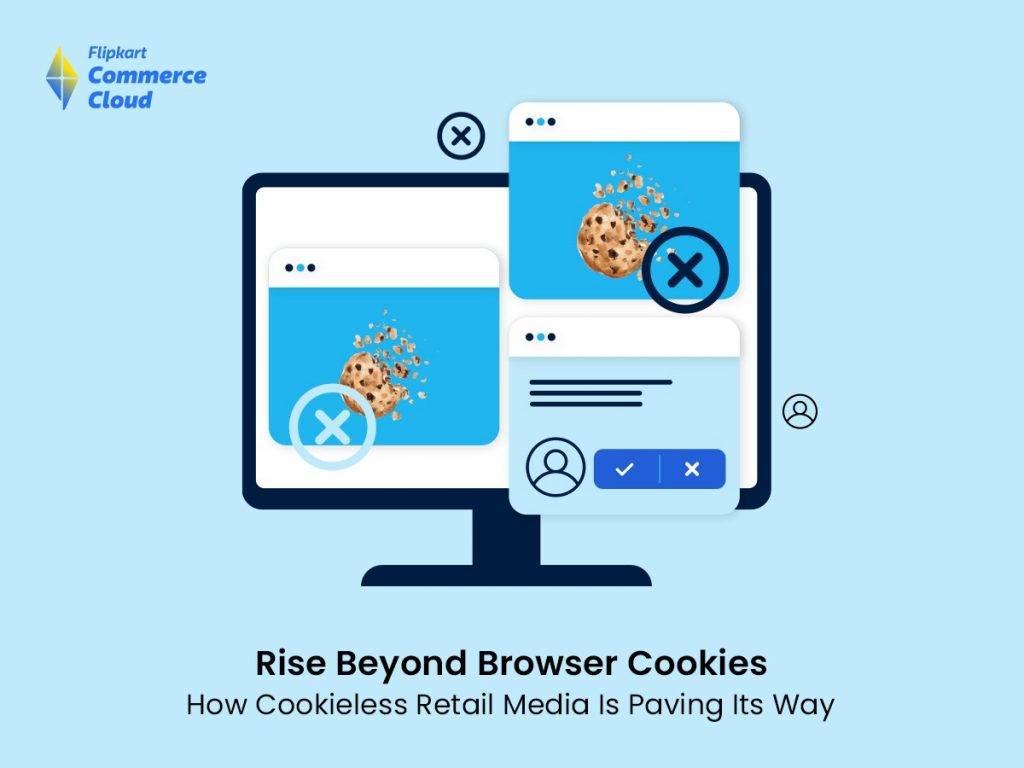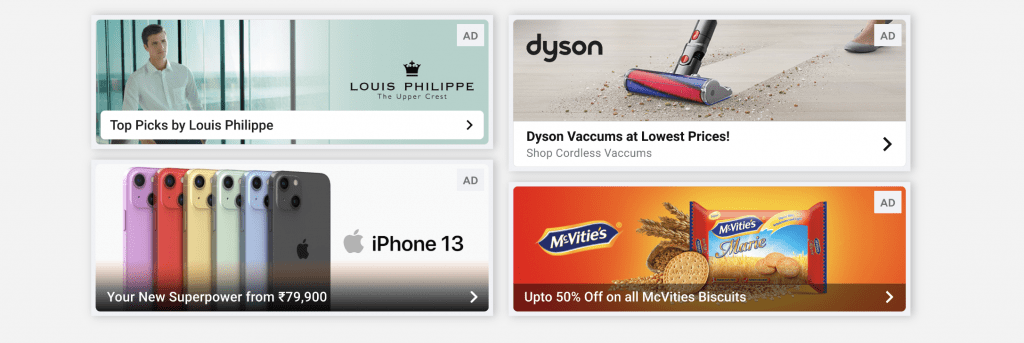Starting in early 2024, Google plans to migrate 1% of Chrome users to Privacy Sandbox and disable third-party cookies for them, the company announced today. Google’s plan to completely deprecate third-party cookies in the second half of 2024 remains on track.
For the past few years, third-party cookies have been the foundation of marketing. They enable ad networks to track digital user profiles, learn about their preferences and habits, and present advertisements related to their browsing history.
But why does Google want cookie-free advertisements? Again, the argument boils down to data privacy risks.
Google and other ad tech companies are often in the limelight regarding how they treat user data. As a result, advertisers are reasonably worried about the repercussions of privacy-related interference. Let’s learn more about the concept of a cookieless world and how we can adapt to these changes.
What Exactly Are Cookies? How Do They Function?
Cookies, being an essential aspect of web browsing, assist web developers in providing you with more personalised, easy website visits.
Cookies allow websites to remember you, your website logins, shopping carts, and other information. They may, however, be a goldmine of private information for crooks to snoop on.

The Actual Facts – Story Behind The Cookie Apocalypse
Let’s clear up the confusion about the new ad format by reading a few facts about the cookie change that marketers should be aware of.
- Marketers believe Google will stop investing in monitoring applications. It will, however, engage in other choices. For example, Google has already taken the initial step with its new Privacy Sandbox, which includes technology that tracks groups of users rather than individuals.
- It’s not like all cookies are prohibited. However, if you believe all of your cookie-related marketing initiatives are futile, think again. Google’s statement was mostly centred on first-party connections. This means that any first-party information collected from your website is kept separate.
- It will offer numerous new possibilities for advertising and promotional development. Many marketing professionals were taken aback by the cookie destruction revelation. This unique cookie initiative will assist us in exercising our creative juices in our brand. To summarise now is the moment to invent, develop, and grow.
The Things You Can Anticipate
Third-party monitoring cookies are definitely on the radar of legislators in the EU and the US. Nevertheless, this must be viewed from a greater perspective. Internet privacy is a political problem, and recent legislation, such as the EU GDPR, goes beyond cookie-based surveillance.
Today, there is a general trend toward increased openness online, and third-party cookies frequently operate in the underground economy. The problem with such a system is that most of its stakeholders are unaware of its internal dynamics.
Advertisers know that personal data could be used to power successful marketing efforts. As a result, they are reluctant to revert to the previous techniques if they have an option.
Chrome’s dilemma for third-party cookie destruction makes room for exploration. They will not abandon this mode of tracking unless it is substituted.
This situation appears to be an unsolvable contradiction. Specifically, since authorities will eventually discontinue any quick fixes that do not protect privacy. Nevertheless, Google is acting on this preconception, and its modifications have made it apparent that they have concerns for privacy, not only cookie-based monitoring.
A Reality Where Everyone’s Privacy Comes First
Third-party cookies have undoubtedly been a boon to marketers and advertising. All it needs to start monitoring users is establishing a cookie and a site visit. After this, you can access all the sites they have browsed. Users, however, have been less pleased about having their online actions watched and surveilled for commercial gain.
Many people have voiced worry about how businesses misuse the data gathered from them.
To alleviate these concerns of loss of privacy, Google intends to scale out the usage of third-party cookies to conform to stricter cookie privacy standards, regain the confidence of its audience online, and develop a digital realm that prioritises privacy for Chrome users.
How Should You Embrace The Cookie Doomsday?
A dramatic shift in the cookieless wave is on the way. Yes, it is difficult but not impossible to tweak a few tactics.
Here are a few tactics you may plan and continue to stay ahead of your competition even amid current confusion:
1. Engage In A First-Party Data Approach
Managing your first-party data is critical in a cookie-free future. But, even while third-party cookies may be dying, you can still reach out cost-efficiently to your audiences through retail media.
Retail marketplaces are a treasure trove of first-party data. But, as previously said, first-party data is like a gem you may hide from your users. Your users will appreciate this initiative. While many businesses strive for the same, finding new and innovative methods to invest in first-data strategies is critical.
Whenever a customer purchases on an e-commerce platform, the retailer can record what has been purchased. Marketers everywhere are increasingly facing restrictions related to tracking customers’ behaviour online.
First-party data remove your reliance on third-party entities. It lets you gather data per policy to target your audiences.
In this scenario, the first-party data is invaluable for advertisers who want to run ad campaigns and leverage ad formats that are contextually related to the user’s specific needs. It also assists you in generating new income sources by utilising segregated user data.
2. Growing Your Network Should Never End
Consumers expect brands and businesses to be more responsible for their privacy and personal information. Begin by creating confidence and reliability in your community. Then, you may begin gathering the facts you require and discard the rest.
As we all know, there has been a significant movement around digital marketing recently, with the bulk of marketing investments moving toward automation. This allows businesses to truly understand their users and offer their customers the best media, and this trend will not vanish. You can start all over using the magic of content and media activity.
3. Try To Be As Open As Possible
You may conquer failures by being truthful in front of your community. Demonstrate what goes on in the background. You may also share the data you are processing with them to build confidence and trustworthiness. This strengthens the bonds between your brand and your customers.
4. Maximize Customer Satisfaction
We are becoming a privatised world where consumer needs and satisfaction are essential. From taking approval to developing new initiatives, it is critical to maintain the client experience at the forefront of your thoughts.
Customer experience has a distinct role in brand marketing. It can assist you in evaluating your target market and defining various connections.
All brands and businesses want to be the greatest in terms of client happiness. Therefore, building a sustainable environment that accommodates your customers’ expectations and matches content with the consumer’s goals is still critical.
Conclusion
Reliable marketing creates reliable advertising methods. However, marketers must adapt to the continuously shifting privacy-based online market.
A healthy strategy is essential for a successful, integrated experience, from emphasising first-party data and ethical marketing to significant industry shifts, cookie removal, and disruptive internet marketing.
Marketers may be optimistic that they will accomplish outcomes since the combined strength of the adtech sector is working on new options. But, whatever direction their pioneering new technologies go, it is evident that businesses will have to rethink their data to achieve benefits. That job begins today with strengthening customer ties.
Flipkart Commerce Cloud Ad Manager solutions offer brands and advertisers end-to-end solutions to leverage first-party data of retail media platforms and monetise online activity with sponsored listings.
Ad Manager’s superior features help create a holistic sponsored ads ecosystem on the retail platform while implementing superior, high-yielding ad revenue models.
You can leverage all existing ad formats, for example, rich media, video ads, & static, with a one-stop solution. These practices, in turn, facilitate increased customer engagement and enable conversions.

More from the author :
- What Is Composable Commerce And Why Is It Important? August 14, 2024
- Transforming Businesses with Digital Commerce: A Comprehensive Guide August 7, 2024
- Optimizing Your Retail Strategy with Price Elasticity in 2024 August 5, 2024
- Your Retail Guide: Three Elements of a Successful Platform Strategy August 5, 2024